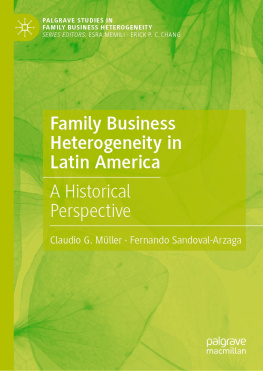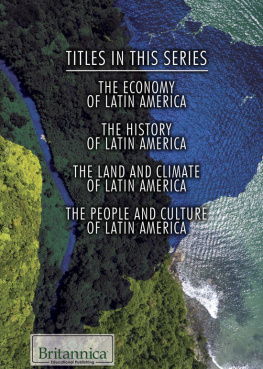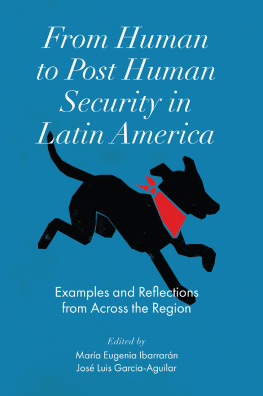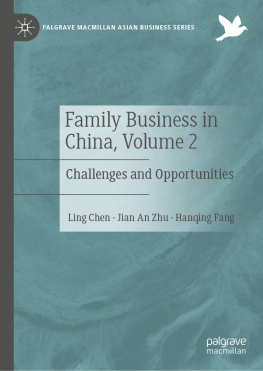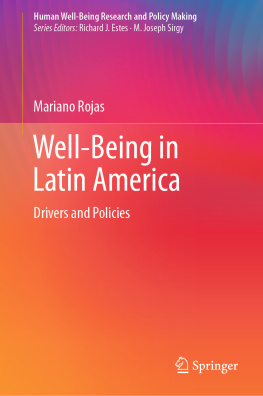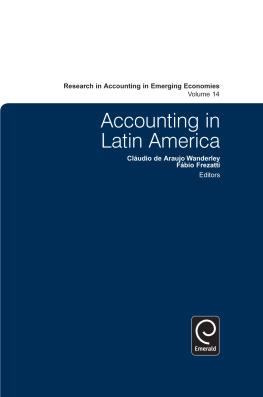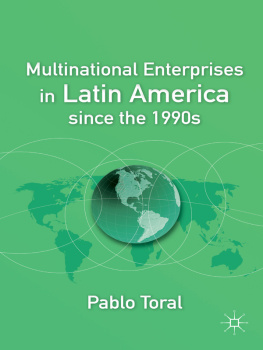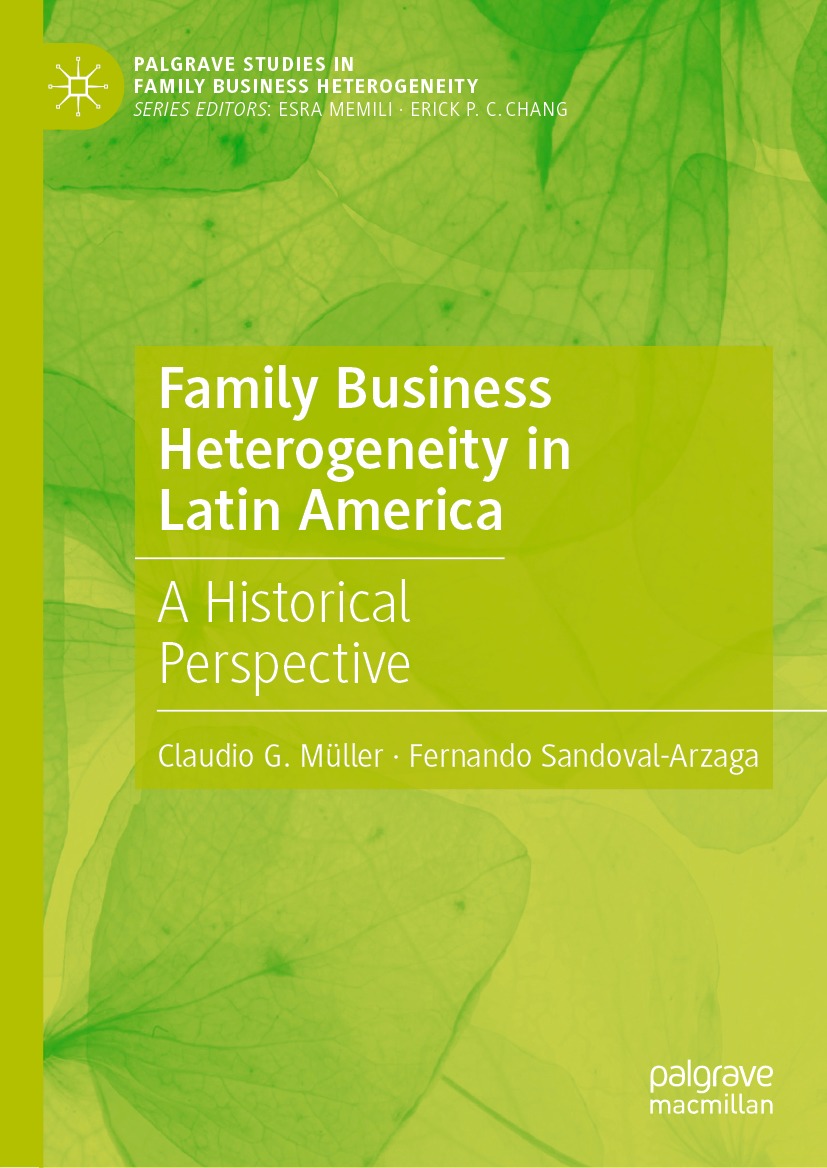Palgrave Studies in Family Business Heterogeneity
Series Editors
Esra Memili
University of North Carolina at Greensboro, Greensboro, NC, USA
Erick P. C. Chang
Griffin College of Business, Arkansas State University, Jonesboro, AR, USA
Contemporary family business research has been moving from highlighting the differences between family and non-family firms to the differences among family firms owing to the financial and non-financial dynamics that influences the strategic decisions and family firm actions. While a prominent stream of research draws attention to financial and non-financial goals (such as socioemotional wealth preservation) and other factors, we still do not know enough about such idiosyncrasies. This series will take a closer look at both financial and non-financial family firm idiosyncrasies across the globe and consider the ecosystem (i.e., regulatory framework, values, culture, access to finance, markets, R&D, and technology), and other national and economic conditions that allow the operations and presence of family firms.
Editors
Esra Memili, UNC Greensboro
Erick P. C. Chang, Arkansas State
Editorial Board
Ernesto J. Poza, Arizona State University
Carol B. Wittmeyer, St. Bonaventure University
Jim Cater, University of Texas at Tyler
More information about this series at http://www.palgrave.com/gp/series/16464
Claudio G. Mller and Fernando Sandoval-Arzaga
Family Business Heterogeneity in Latin America
A Historical Perspective
1st ed. 2021

Logo of the publisher
Claudio G. Mller
School of Economics and Business, University of Chile, Santiago, Chile
Fernando Sandoval-Arzaga
Tecnologico de Monterrey, Monterrey, Nuevo Len, Mexico
ISSN 2662-6055 e-ISSN 2662-6063
Palgrave Studies in Family Business Heterogeneity
ISBN 978-3-030-78930-5 e-ISBN 978-3-030-78931-2
https://doi.org/10.1007/978-3-030-78931-2
The Editor(s) (if applicable) and The Author(s), under exclusive license to Springer Nature Switzerland AG 2021
This work is subject to copyright. All rights are solely and exclusively licensed by the Publisher, whether the whole or part of the material is concerned, specifically the rights of translation, reprinting, reuse of illustrations, recitation, broadcasting, reproduction on microfilms or in any other physical way, and transmission or information storage and retrieval, electronic adaptation, computer software, or by similar or dissimilar methodology now known or hereafter developed.
The use of general descriptive names, registered names, trademarks, service marks, etc. in this publication does not imply, even in the absence of a specific statement, that such names are exempt from the relevant protective laws and regulations and therefore free for general use.
The publisher, the authors and the editors are safe to assume that the advice and information in this book are believed to be true and accurate at the date of publication. Neither the publisher nor the authors or the editors give a warranty, expressed or implied, with respect to the material contained herein or for any errors or omissions that may have been made. The publisher remains neutral with regard to jurisdictional claims in published maps and institutional affiliations.
This Palgrave Macmillan imprint is published by the registered company Springer Nature Switzerland AG
The registered company address is: Gewerbestrasse 11, 6330 Cham, Switzerland
Series Editors Preface
A prominent stream of research has been drawing attention to the differences among family firms in terms of governance, financial and non-financial dynamics, and strategies. Using the extant research to date that includes the Palgrave Handbook of Heterogeneity among Family Firms as a point of departure, it is our distinct pleasure and honor to present the Palgrave Studies in Family Business Heterogeneity.
Our inaugural book focuses on the evolution of family firms throughout the Latin American region. Indeed, family firms interact with and are substantially influenced by their external environment (i.e., country and regional contexts). In turn, family firms also influence their external environment encompassing formal (e.g. economic, legal, and political) and informal institutions (e.g. norms, values, beliefs, and attitudes). Hence, in family firms, the decision to start a business and then venture management are led by both individual characteristics of firms and owners as well as the external environment in which firms operate.
Claudio Muller and Fernando Sandoval-Arzaga provide a historical perspective on more than five centuries of institutional changes and resource combinations that have paved the way for multiple entrepreneurial families to start and manage businesses with different scopes and goals shaped by regional forces in Latin America. In different sections of the book, the authors illustrate four distinctive waves where traditions have been transmitted over generations to develop a unique type of social capital that is highly idiosyncratic to the Latin American region. From the earlier entrepreneurs who arrived from Europe to seize the vast opportunities in the New World to the migration flows from other continents, each wave nurtures and blends with the next one to enrich it and endows family businesses the melting pot of which Latin American society represents today.
The primary enlightening aspect of the book is the diversity and different challenges each family business has endured over generations. The authors proficiently guide the readers about the emergence of a highly heterogeneous group of industry sectors through the integration of pre-Columbian products and services with the Western European technology which are endowed with traditions and familiness to make them competitive on a global scale.
We expect family business scholars and practitioners in general to find this book highly useful for gaining more understanding about the unique culturally rich region.
Esra Memili
Erick P. C. Chang
Acknowledgments
We would like to acknowledge and thank the eight families that inspired us in the writing of this book. Without their stories of legacy and entrepreneurship this book would not have had the practical vision we wanted to capture. Many of these families have origins dating back almost to the colonial period and other success stories are a bit more current, but no less important.
In addition, we would like to thank those with whom we have discussed the heterogeneity of family businesses in Latin America, some friends and colleagues who come from different sciences, such as anthropologists, historians, communication theorists and sociologists without their valuable contributions we would not have been able to finish this text.
Likewise, we would like to acknowledge Esra Memili and Erick Chang for inviting and motivating us to be part of this Palgrave Studies in Family Business Heterogeneity series, but above all for their wise advice that helped us to improve the quality and rigor of this text, which we hope will be a contribution to family business research. We would also like to acknowledge the assistance and support of Marcus Ballenger and his team at Palgrave Macmillan, who allowed us to move this work forward diligently to see the book through from idea to publication.

